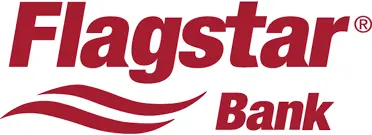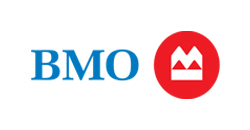2025 FHA Loan Limits in Connecticut
With a low down payment requirement, loans backed by the Federal Housing Administration (FHA) can be easier to qualify for than other mortgages. However, you can only borrow up to the FHA loan limit in your county. The 2025 FHA loan limits for single-family homes in Connecticut range from $524,225 to $851,000.
We’ll cover how to qualify for an FHA loan in Connecticut, the borrowing limits in your county and how to find FHA lenders.
Connecticut FHA loan limits by county
Connecticut single-family FHA loan limits
| County name | One unit | Two units | Three units | Four units | Median sales price |
|---|---|---|---|---|---|
| FAIRFIELD | $851,000 | $1,089,450 | $1,316,900 | $1,636,550 | $740,000 |
| HARTFORD | $524,225 | $671,200 | $811,275 | $1,008,300 | $433,000 |
| LITCHFIELD | $524,225 | $671,200 | $811,275 | $1,008,300 | $371,000 |
| MIDDLESEX | $524,225 | $671,200 | $811,275 | $1,008,300 | $433,000 |
| NEW HAVEN | $524,225 | $671,200 | $811,275 | $1,008,300 | $385,000 |
| NEW LONDON | $524,225 | $671,200 | $811,275 | $1,008,300 | $380,000 |
| TOLLAND | $524,225 | $671,200 | $811,275 | $1,008,300 | $433,000 |
| WINDHAM | $524,225 | $671,200 | $811,275 | $1,008,300 | $450,000 |
How are FHA loan limits determined?
The National Housing Act (NHA) requires the FHA to cap FHA loan limits for single-family homes at 115% of the median home price in each county or metro area and to establish “floor” and “ceiling” limits. These national floor and ceiling amounts are based on the conforming loan limit for conventional mortgages established by the Federal Housing Finance Agency (FHFA) and are updated annually.
The FHA loan limit floor is 65% of the national conforming loan limit for single-family properties ($806,500), and the ceiling is 150% of that amount. That means 2025 FHA loan limits fall between $524,225 and $1,209,750 nationally. An even higher limit of $1,814,624 applies in Alaska, Hawaii, Guam and the U.S. Virgin Islands because of the higher cost of construction and other factors.
Seven of Connecticut’s eight counties have FHA loan limits at the floor amount of $524,225 in 2025. Fairfield County, with a median home price of $740,000, has an FHA loan limit of $851,000.
How to qualify for an FHA loan in Connecticut
The FHA doesn’t lend money to homebuyers directly. Instead, the government agency insures loans offered by FHA-approved private lenders. Because there’s less risk in offering a loan that a federal agency backs, FHA lenders can approve borrowers with lower credit scores than conventional lenders.
But you’ll still need to meet specific FHA loan requirements to qualify. Bear in mind that individual FHA lenders can set additional criteria, but at a minimum, you must:
- Have a valid Social Security number: To get an FHA loan, you must be a U.S. citizen or a lawful permanent resident alien with a valid SSN.
- Intend to live in the home: Typically, at least one borrower must occupy the home that secures your FHA mortgage, and that borrower will need to live in the property for at least one year. That means you can’t use an FHA loan to buy an investment property unless you live in one of the units and rent out the others.
- Have at least a 500 credit score: You can qualify for an FHA loan with a credit score as low as 500. However, you must put 10% or more down if your score is between 500 and 579.
- Make a minimum 3.5% down payment: You’ll make a minimum down payment of 3.5% of the loan amount. (If your credit score is between 500 and 579, you must make a down payment of at least 10%.) FHA allows you to use funds from gifts or down payment assistance programs. You’ll need additional money to cover your closing costs as well.
- Have a maximum 43% debt-to-income ratio: Generally, your monthly debt payments must be less than 43% of your gross monthly income. However, some lenders may approve a higher debt-to-income ratio if you have sufficient cash reserves.
- Prove consistent income. While there are no minimum income requirements for FHA loans, lenders typically ask for proof of your income and employment history for the past two years.
- Home appraisal. An FHA appraisal assesses the property’s market value and confirms it meets FHA’s standards.
- Mortgage insurance. You’ll pay two types of FHA mortgage insurance: an upfront premium of 1.75% of the loan amount (typically financed with the principal) and an annual mortgage insurance premium of 0.15% to 0.75% (calculated with your monthly mortgage payments).
Buying a multifamily property with an FHA loan
The FHA loan program also allows you to purchase a multifamily home of two to four units with just 3.5% down, as long as you live in one of the units as your primary residence. You can even use the projected rental income from the other units to qualify for the loan. This is known as house hacking.
In addition to the requirements noted in the section above, you’ll need cash reserves equal to at least one mortgage payment to buy a two- to four-unit building. The 2025 FHA loan limits for multifamily properties are higher than those for single-family homes.
| Number of units | Low-cost FHA loan limit |
|---|---|
| Two | $671,200 |
| Three | $811,275 |
| Four | $1,008,300 |
FHA lenders in Connecticut
| Lender | LendingTree rating | Minimum FHA credit score | |
|---|---|---|---|
 | 580 | ||
 | 580 | ||
 | 580 | ||
 | 620 | ||
 | 580 |
Compare FHA Loans for Free




